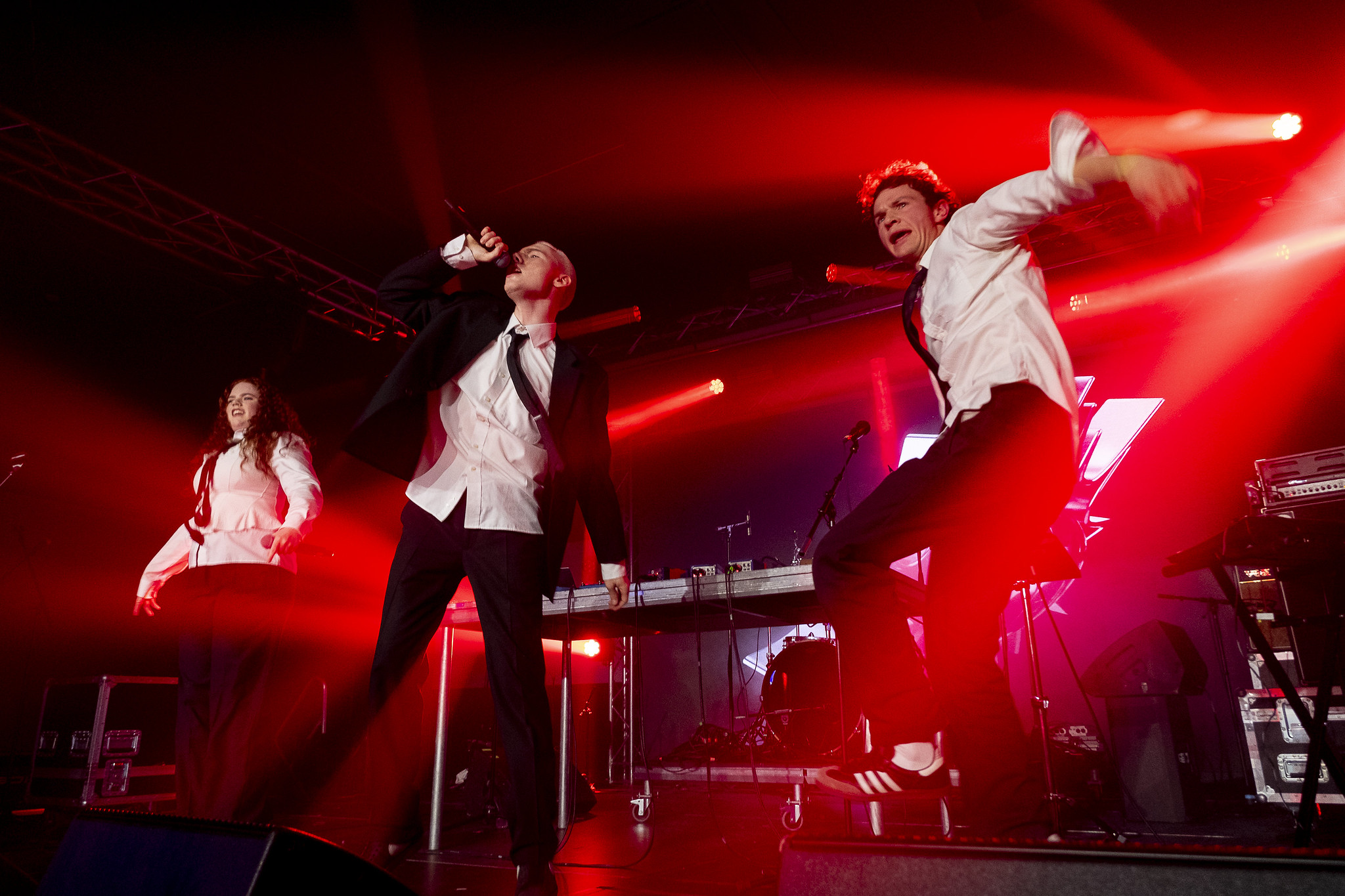Iceland Airwaves 2024, and the success of a country bothering to invest in its musicians
Iceland's music scene isn't without its problems, but Iceland Airwaves continues to prove that the country's government are willing to support their artists in a way the UK never has

Imagine having a government that pays more than just lip service to supporting the arts. Where funding is readily available for those that need it, so that music needn’t merely be the preserve of the upper middle classes. Sounds wild, right? Except in Iceland it exists.
Reporting to the Ministry of Culture and Business Affairs, the Iceland Music office administers the Iceland Music Fund, which supports local artists with music creation and promotion, both domestically and internationally. They also oversee Record Iceland, another government-backed initiative which offers a 25% rebate to international artists using Icelandic recording studios. Add to this Iceland Airwaves’ continued commitment to booking as many local artists as international acts, and you can begin to see why the creative industries now account for 3.5% of Iceland’s annual GDP.
That’s not to say Iceland is some liberal utopia – indeed, a hot topic amongst locals is safeguarding Reykjavik’s music scene, after the recent closure of several independent venues to make way for hotels. But while there’s clearly still work to do, there’s a sense that the Government are prepared to do it, not least because they understand that by investing in their cultural legacy they leave every citizen richer.
This positive, can-do spirit powers Iceland Airwaves – Reykjavik’s flagship festival and conference. Having essentially started out as a GusGus gig in an aircraft hangar back in 1999, organisers have spent the past quarter of a century tinkering with the format before arriving at their current set-up of three nights, six venues, 7,000-odd punters and an eclectic conference programme – plus a slew of unofficial fringe events at dive bars, record stores and churches. This year the conference ranges from panels on artistic integrity to an Of Monsters and Men listening party hosted by Tim Burgess. For the uninitiated, it’s a bit like The Great Escape, but audiences are entirely fueled by Bæjarins Beztu Pylsur’s hotdogs, and the Faroese Music Export are welcome.
Speaking of which, Faroese rapper Silvurdrongur provides one of the weekend’s early talking points, delivering half an hour of intense jazz/metal weirdness over at the stunning, lakeside ballroom Iðnó. Sporting a chiffon headscarf, sweatbands and a fringed shawl, they ricochet between moments of fury and serenity, their freeform song structures loosely guided by double bass, cello, drums and guitar. Much-hyped Florida duo Magdalena Bay are of equal sartorial interest, with singer Mica Tenenbaum twirling in an iridescent green cloak in front of hyperreal videos that are part Leigh Bowery, part Windows 95 screensaver. Though well-received, their music is a lot less remarkable, offering pretty but ultimately frictionless pop songs that segue indistinguishably into one another.
Happily, when Brighton punks Lambrini Girls play the same venue a day later, the mood is more chaotic, their stage show akin to Art Brut for radical feminists. “Who’s ready to fuck!” heckles frontwoman Phoebe Lunny, her attitude a cross between Amyl and the Sniffers’ Amy Taylor and Courtney Love. A consummate entertainer, she ploughs into the audience during scathing single ‘Big Dick Energy’, dividing the crowd down the middle – much to their delight – and making them crouch.
Even better are Charlotte Adigéry and Bolis Pupul, who wind up their ‘Topical Dancer’ tour on a wave of raw emotion. “My father passed away in September and this is the first time I’m performing since,” Adigery explains, her voice breaking during ‘Reappropriate’. Together, the duo transform that grief into unadulterated joy, despatching an irresistible set of techno-tinged synth-pop that inspires audience members to dance onstage. Over at converted parking garage Kolaport, Dutch septet Personal Trainer are similarly life-affirming, their hooky indie-pop redolent of early Los Campesinos. They make a great one-two with ever-reliable Finn Jaakko Eino Kalevi who fills former nightclub NASA with his lovingly lo-fi grooves.
The sheer sonic variety of Icelandic acts is staggering, extending from the death metal of Vampira to the Julia Jacklin-esque alt-country of Elín Hall, via Inspector Spacetime’s [top photo] apparently irony-free Euro house. Featuring two MCs and one singer, the latter pogo and skank in badly fitting suits and ties to a mix of happy hardcore, trance and jungle, and boast songs that sound both like Alice Deejay and Experience-era Prodigy. They’re probably the least cool band I’ve ever seen, and are therefore one of the most fun.
Despite her Icelandic heritage, Grammy-nominated Canadian Charlotte Day Wilson confesses to having never played in the country, and yet still charms the throngs at the Art Museum with her Sade-esque R&B. Reykjavik trio Virgin Orchestra are a revelation, their cello-embellished post-punk ideally suited to the roster of 80s 4AD. But most memorable is the surprise show staged by choir collective Kliður at the Seventh Day Adventist Church. Composed of musicians of all genres from across the country, their textural harmonies leave the packed out pews hushed and starry-eyed. And as we stumble out into the streets at midnight, hoping to glimpse the aurora borealis, it feels fitting that one of the weekend’s musical highlights comes courtesy of a community outfit operating outside of the main programme – such is the country’s surfeit of musical talent. Long may the government nurture it.